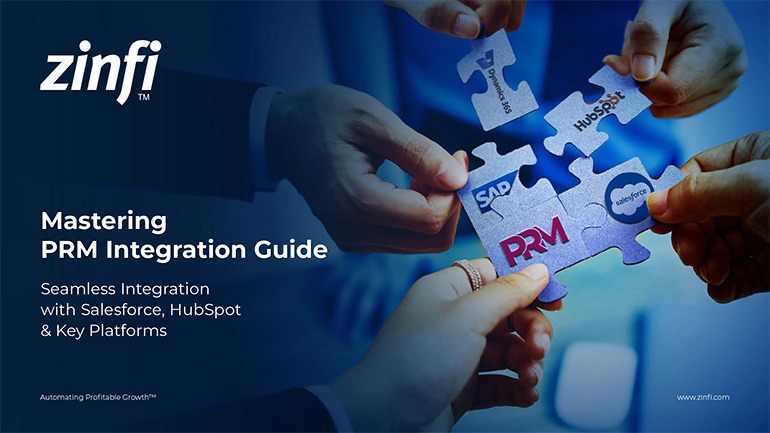Glossary - How to - Partner Marketing Strategies
How to Develop Effective Partner Marketing Strategies?
Introduction
Understanding Partner Marketing Strategies
Partner marketing strategies refer to business tactics to collaborate with external organizations, affiliates, or influencers to promote products or services. These strategies help brands expand their reach, improve credibility, and drive more revenue. Partner marketing plays a vital role in the modern business ecosystem by leveraging the strengths of multiple entities to create a mutually beneficial relationship.
Importance in Partner Relationship Management (PRM)
Partner marketing strategies are crucial in Partner Relationship Management (PRM) as they help streamline collaboration efforts between brands and their partners. A well-structured PRM system enables companies to efficiently manage partner relationships, track performance, and optimize marketing efforts. Organizations that leverage partner marketing within a PRM framework can maximize the impact of their campaigns while maintaining brand consistency across all channels.
Key Takeaways:
- Define Clear Goals and Objectives: Setting clear and measurable goals is the first step in developing an effective partner marketing strategy. To align with their objectives, Businesses should outline key performance indicators (KPIs) such as lead generation, brand awareness, or sales growth. Companies must also establish benchmarks to measure their partners’ success and contributions.
- Select the Right Partners: Choosing the right partners is essential for a successful partner marketing strategy. Organizations should evaluate potential partners based on their market reach, audience engagement, and alignment with the brand values. Effective partner selection ensures a seamless integration of marketing efforts and enhances brand credibility.
- Develop a Comprehensive Partner Onboarding Process: A structured onboarding process sets the foundation for a productive partnership. Companies should provide partners with detailed guidelines, marketing materials, and training resources. Onboarding should also include clear communication of expectations, responsibilities, and available support to ensure long-term success.
- Utilize Co-Branding and Co-Marketing Initiatives: Co-branding campaigns help partners leverage their brand equity. These initiatives can include joint advertising campaigns, content collaborations, and event sponsorships. A well-executed co-branding effort increases brand visibility and strengthens partnerships.
- Leverage Technology and Automation: Technology plays a significant role in optimizing partner marketing strategies. PRM software and marketing automation tools help track partner performance, manage incentives, and streamline communication. Businesses should invest in the right technology to enhance their partner marketing effectiveness.
Summary of Key Takeaways:
- Establish clear and measurable goals.
- Carefully select partners that align with your brand values.
- Implement a structured onboarding process for seamless collaboration.
- Engage in co-branding and co-marketing initiatives to expand reach.
- Utilize PRM software and automation tools to optimize marketing efforts.
Industry-Specific Examples:
- Automotive Manufacturing: Automotive brands collaborate with dealerships and influencers to promote new car models and increase showroom traffic. Partner marketing in this industry includes co-branded advertisements and promotional test-drive events.
- Consumer Electronics: Technology brands often partner with retail chains and tech reviewers to expand their product reach. Joint campaigns, bundled promotions, and affiliate marketing programs are widely used strategies in this sector.
- Energy Production: Energy companies partner with sustainability advocates and government organizations to promote renewable energy solutions. Co-marketing initiatives help educate the public about clean energy adoption.
- Financial Services: Banks and financial institutions collaborate with fintech startups to offer innovative solutions. These partnerships involve co-branded marketing efforts and referral programs to attract new customers.
- Food and Beverage: Restaurants and beverage companies engage in cross-promotions with suppliers and local businesses to drive sales. Strategic partnerships with influencers and event sponsorships are common marketing strategies.
- Healthcare Services: Hospitals and pharmaceutical companies collaborate with healthcare providers to market new treatments and wellness programs. Partner marketing in healthcare focuses on educational content and patient engagement initiatives.
- Information Technology: Tech firms use channel partnerships and reseller programs for software solutions. Co-branded webinars, affiliate programs, and joint product launches are suitable marketing strategies.
- Pharmaceutical Development: Pharmaceutical brands partner with research institutions and healthcare professionals to promote new drug formulations. Educational campaigns and sponsorship of medical conferences are common partner marketing tactics.
- Retail Industry: Retailers collaborate with fashion influencers and e-commerce platforms to boost brand awareness. Affiliate marketing, exclusive product launches, and co-branded promotions drive sales in this industry.
- Telecommunications: Telecom companies partner with mobile device manufacturers and internet providers to offer bundled services. Joint advertising and cross-promotional deals attract more customers.
Conclusion:
Partner marketing strategies are integral to business success, enabling companies to leverage external networks and increase brand exposure. By setting clear goals, choosing the right partners, and utilizing automation tools, businesses can maximize the impact of their partner marketing efforts. Industry-specific examples highlight the diverse applications of these strategies across different sectors. A well-executed partner marketing strategy fosters strong relationships, drives revenue growth, and ensures long-term success in competitive markets.
Associated Keywords:
- Partner Marketing Best Practices
- Co-Branding Strategies
- PRM Software for Marketing















